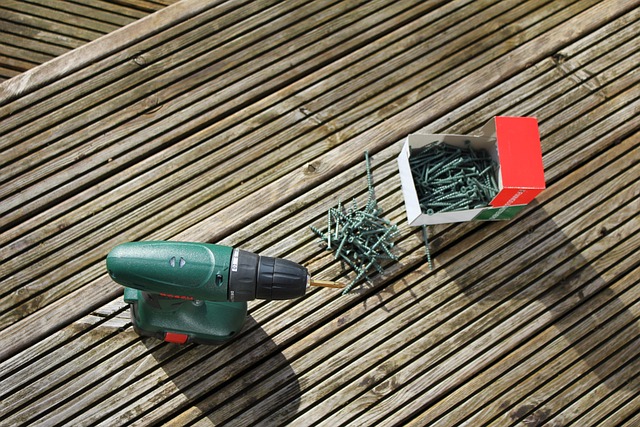Inspection Awareness: Spreading the Importance of Electrical Safety Inspections in Sonipat
Introduction
Welcome to an article that aims to raise awareness about the importance of electrical safety inspections in Sonipat. In this day and age, where electricity plays a vital role in our daily lives, it’s crucial to ensure that our electrical systems are safe and functioning optimally. Electrical safety inspections serve as a proactive measure to identify potential hazards and prevent accidents. This article will guide you through the significance of electrical safety inspections and provide valuable insights for homeowners and businesses alike.
Understanding Electrical Safety Inspections
Electrical safety inspections involve a comprehensive assessment of electrical systems, including wiring, outlets, switches, panels, and appliances. Qualified electrical inspectors conduct thorough evaluations to identify any existing or potential issues, such as faulty wiring, outdated components, or overloaded circuits. These inspections are conducted in accordance with national and local electrical codes to ensure compliance and minimize the risk of electrical accidents.
The Importance of Electrical Safety Inspections
- Preventing Electrical Accidents: Regular inspections help identify and address potential electrical hazards before they lead to accidents, such as electrical shocks, fires, or electrocution. By ensuring the safety of your electrical systems, you protect yourself, your family, and your property from harm.
- Safeguarding Property: Faulty electrical systems can pose a significant risk to your property, increasing the likelihood of electrical fires. Electrical safety inspections can identify wiring issues, overloaded circuits, or outdated components that might otherwise go unnoticed. By rectifying these issues promptly, you minimize the risk of electrical fires and potential property damage.
- Compliance with Regulations: Electrical safety inspections are essential for both homeowners and businesses to comply with electrical codes and regulations. Non-compliance can result in penalties, legal issues, or insurance complications. Regular inspections ensure that your electrical systems meet the required standards, giving you peace of mind and avoiding unnecessary complications.
Common Electrical Hazards
- Faulty Wiring: Outdated or damaged wiring is a common electrical hazard that can lead to electrical shocks, short circuits, or fires. Regular inspections can identify and rectify faulty wiring, ensuring the safety of your electrical system.
- Overloaded Circuits: Overloading circuits by connecting multiple appliances to a single outlet can result in overheating and potential fire hazards. Electrical safety inspections help identify overloaded circuits and provide recommendations to distribute the electrical load properly.
- Outdated Components: As electrical systems age, components such as panels, switches, and outlets can become outdated or deteriorate, increasing the risk of electrical issues. Inspections help identify and replace outdated components, enhancing the safety and efficiency of your electrical system.
Benefits of Regular Electrical Safety Inspections
- Early Detection of Issues: Regular inspections allow for the early detection of electrical issues, preventing them from escalating into more significant problems. By addressing minor issues promptly, you can avoid costly repairs and potential hazards.
- Enhanced Electrical System Performance: A well-maintained electrical system operates more efficiently, reducing energy waste and saving you money on utility bills. Regular inspections can identify areas where improvements can be made to enhance the performance of your electrical system.
- Increased Safety: By conducting regular inspections, you ensure the safety of your loved ones and protect your property from electrical accidents. Being proactive and addressing potential hazards promptly helps create a secure environment for everyone.
Choosing a Qualified Electrical Inspector
When selecting an electrical inspector in Sonipat, it’s important to consider their qualifications and experience. Look for individuals or companies that are licensed, certified, and have a solid reputation in the industry. Ensure that the inspector has knowledge of local electrical codes and standards to guarantee compliance. Additionally, read reviews and seek recommendations to make an informed decision.
The Inspection Process
During an electrical safety inspection, the inspector will examine various aspects of your electrical system, including wiring, panels, switches, outlets, grounding, and appliances. They will assess the condition, functionality, and safety of these components. The inspector may also conduct tests to measure electrical flow, check for potential overloads, and inspect the electrical grounding system. After the inspection, you will receive a detailed report outlining the findings and recommendations for any necessary repairs or upgrades.
Addressing Electrical Issues
If the electrical inspection reveals any issues or areas of concern, it’s crucial to address them promptly. Hiring a qualified electrician to rectify these issues is vital to ensure that the repairs are done correctly and safely. Ignoring electrical problems can lead to more severe issues and compromise the safety of your electrical system.
Ensuring Compliance with Electrical Codes and Standards
Electrical codes and standards exist to ensure the safety and functionality of electrical systems. Compliance with these codes is essential for both homeowners and businesses. Regular electrical safety inspections help identify areas where improvements or updates are needed to meet the required standards. Staying up to date with electrical codes not only ensures safety but also helps avoid penalties and legal complications.
Electrical Safety Tips for Homeowners
- Do not overload outlets and circuits.
- Avoid using damaged or frayed electrical cords.
- Install ground fault circuit interrupters (GFCIs) in bathrooms, kitchens, and outdoor areas.
- Regularly test and replace smoke detectors and carbon monoxide detectors.
- Hire a qualified electrician for any electrical repairs or installations.
Electrical Safety Tips for Businesses
- Implement a regular electrical maintenance program.
- Train employees on electrical safety protocols.
- Conduct routine inspections of electrical systems and equipment.
- Use surge protectors and voltage regulators to safeguard sensitive electronic equipment.
- Have a clear emergency response plan in place for electrical accidents or outages.
Frequently Asked Questions (FAQs)
Q1: How often should I schedule an electrical safety inspection? A1: It is recommended to have an electrical safety inspection conducted at least once every five years for residential properties. However, if you notice any signs of electrical issues, it’s best to have an inspection done promptly.
Q2: Can I conduct an electrical safety inspection myself? A2: It’s highly recommended to hire a qualified electrical inspector to conduct thorough and accurate inspections. They have the knowledge and expertise to identify potential hazards and provide appropriate recommendations.
Q3: What are the signs of electrical issues? A3: Signs of electrical issues include flickering lights, frequent circuit breaker trips, burning smells, hot outlets or switches, and electrical shocks.
Q4: Can an electrical safety inspection reduce my insurance premiums? A4: Some insurance companies offer reduced premiums for properties that have undergone electrical safety inspections and meet the required standards. It’s best to check with your insurance provider for specific details.
Q5: How long does an electrical safety inspection typically take? A5: The duration of an electrical safety inspection depends on the size of the property and the complexity of the electrical system.




